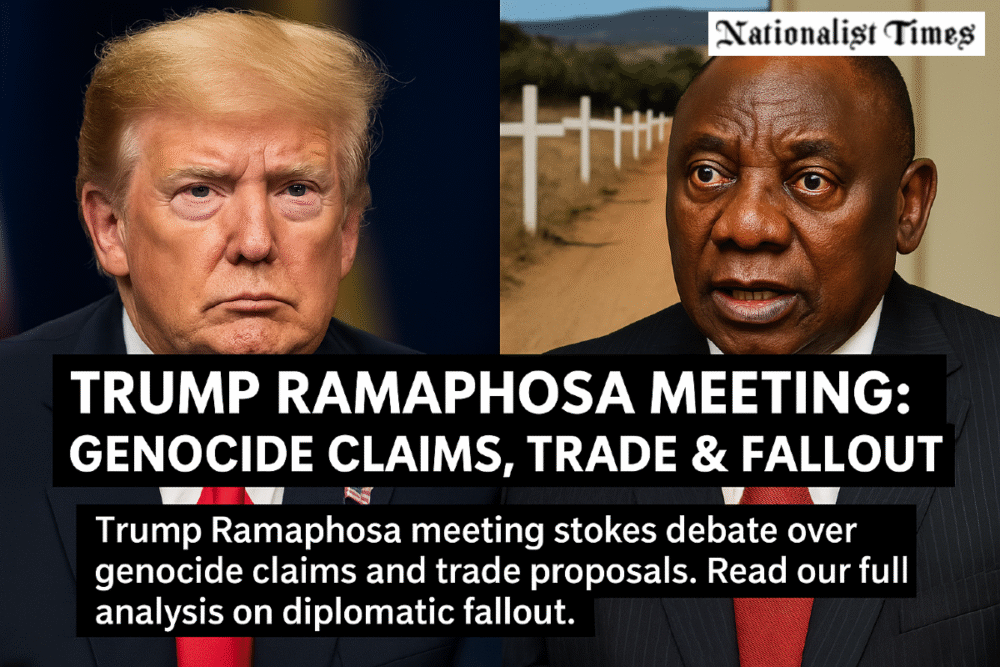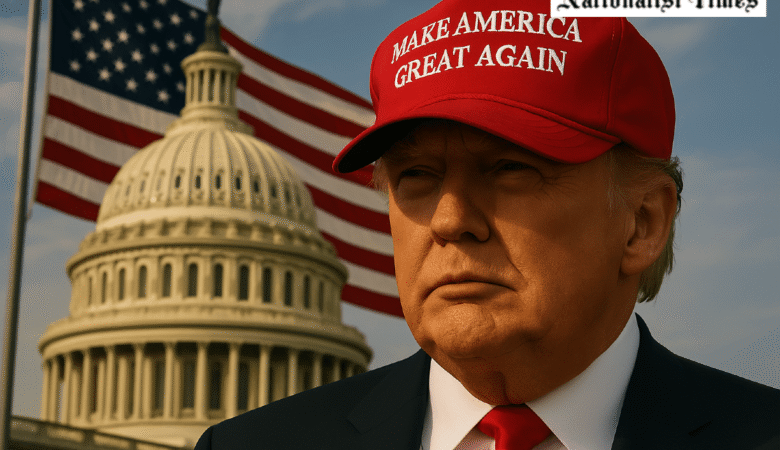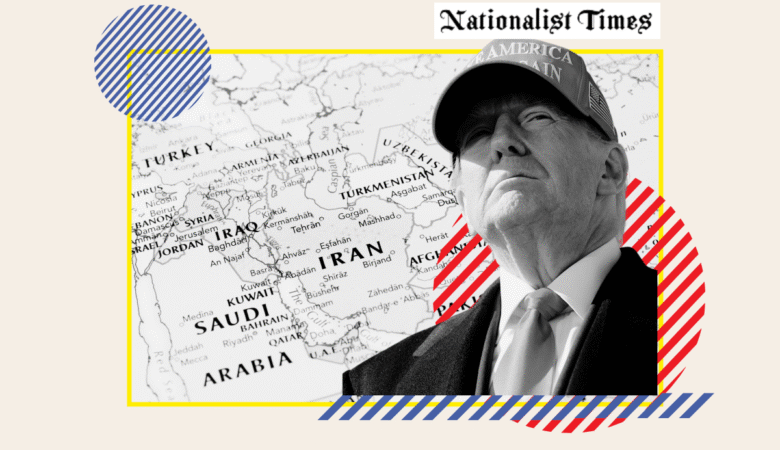The recent high-profile Trump Ramaphosa meeting, held at the White House, has generated significant international attention. Originally intended as an opportunity to strengthen United States–South Africa relations, the meeting quickly evolved to address highly controversial issues. Central to the discussion were allegations concerning alleged acts of white genocide, specifically claims tied to misrepresented burial site imagery. In parallel, President Cyril Ramaphosa presented a series of trade proposals designed to enhance economic cooperation between the two nations. This article provides an in-depth analysis of the meeting, the contested claims of genocide, the trade initiatives on offer, and the broader diplomatic fallout that could affect future bilateral engagement.
Allegations of White Genocide and Misrepresented Burial Sites in the Trump Ramaphosa meeting
During the Trump Ramaphosa meeting, President Donald Trump introduced a video clip that has since become the focus of intense scrutiny. The footage presented a rural roadway lined with white crosses, which Trump asserted represented a mass burial site. He argued that the arrangement stood as evidence of a systematic campaign of violence against white farmers—a narrative he described as indicative of “white genocide.”
However, South African officials and independent fact-checkers have consistently refuted this claim. The evidence indicates that the video was originally recorded during a memorial event in 2020. At that event, crosses were temporarily installed to honor the victims of violence in rural areas—a solemn commemoration rather than an indication of active genocide. The deliberate mischaracterization of the imagery has raised concerns about the politicization of sensitive historical and social issues.
Ramaphosa’s Response: Defending a Factual Narrative
In response to the allegations raised during the Trump Ramaphosa meeting, President Cyril Ramaphosa offered a measured and fact-based rebuttal. He firmly rejected any suggestion that South Africa is experiencing a state-sanctioned genocide against white farmers. Instead, Ramaphosa emphasized that violent crime in the country is a multifaceted challenge that affects all communities.
During the exchange, Ramaphosa stated, “There is no factual basis to the claims of a white genocide in South Africa. Our challenges are rooted in broader issues of criminal violence, which affect citizens indiscriminately.” His remarks underscored the South African government’s commitment to addressing crime through progressive and inclusive policies while urging a reliance on verified data instead of politically motivated narratives.
Independent Analysis and Fact-Checking of the Meeting Claims
In the aftermath of the Trump Ramaphosa meeting, numerous independent analysts scrutinized the claims made during the session. A review of South African crime statistics reveals that farm murders account for less than one percent of the nation’s total homicide rate. Moreover, comprehensive analyses have determined that violent crime disproportionately impacts Black citizens in South Africa, who constitute the majority of victims.
Researchers emphasize that no verifiable evidence supports the notion of a targeted campaign against white farmers. Instead, they contend that the video footage used by Trump was taken out of context. The selective use of memorial imagery not only distorts the reality on the ground but also amplifies divisive political rhetoric. This critical examination serves as a reminder that political narratives must be held to strict evidentiary standards.
Trade Proposals and Economic Initiatives Presented at the Trump Ramaphosa meeting
While the contentious debate over genocide claims garnered considerable media attention, the Trump Ramaphosa meeting also served as a platform for significant economic dialogue. President Ramaphosa seized the opportunity to propose a comprehensive trade deal aimed at deepening economic ties between South Africa and the United States.
The proposal included measures to reduce tariffs on South African exports, encourage bilateral investments in key sectors—including agriculture, mining, and technology—and improve overall market access. Ramaphosa argued that a stronger trade framework would not only benefit South Africa’s economy but also bolster strategic economic interests in the United States.
However, President Trump’s persistent focus on contentious issues such as land seizures and the alleged violence meant that the economic proposals did not receive the full attention they might otherwise have warranted. The divergence in priorities between the two leaders has raised concerns among economic and diplomatic observers about the future trajectory of bilateral trade negotiations.
Diplomatic and Political Fallout from the Trump Ramaphosa meeting
The ramifications of the Trump Ramaphosa meeting extend well beyond the issues discussed on the day. The meeting has contributed to heightened diplomatic tensions between the United States and South Africa. Prior to this engagement, the United States had already taken steps to curtail aid to South Africa, citing discontent with the country’s land reform policies. Trump’s inflammatory rhetoric has only deepened existing divides.
South African officials have expressed strong disapproval of the misleading claims, describing them as both “divisive” and “unhelpful” in fostering constructive dialogue. Political analysts warn that if such rhetoric continues unchecked, future initiatives intended to promote economic cooperation and political stability may suffer.
The Role of Misinformation in Shaping Diplomatic Discourse
A significant element of the controversy surrounding the Trump Ramaphosa meeting is the role played by misinformation. The video clip and associated comments circulated rapidly on social media, reaching a broad audience before comprehensive fact-checking could take place. This rapid spread of unverified information has the potential to exacerbate tensions between states and distort public perceptions.
Media organizations and social media platforms face increasing pressure to implement robust mechanisms that can identify and counteract the spread of false narratives. In the context of high-stakes diplomatic interactions, the risk posed by misinformation becomes particularly acute. Observers note that rigorous fact-checking and transparent reporting are essential in maintaining the integrity of political discourse.
Historical Context: Long-Standing Narratives and Their Modern Implications
The narratives advanced during the Trump Ramaphosa meeting are not new. For several years, certain right-wing groups have propagated claims of a white genocide occurring in South Africa. These assertions are rooted in long-standing grievances and are frequently used to support broader political agendas in both national and international arenas.
In South Africa, the legacy of colonialism and apartheid continues to influence debates over land reform and economic equality. Internationally, the portrayal of South Africa as a nation in crisis has at times served as a political tool to justify intervention or to attract support for controversial policy decisions. The current meeting underscores how deeply ingrained these narratives have become and how they can resurface in highly charged political environments.
Economic Implications and Future Prospects for US–South Africa Relations
The economic dimensions of the Trump Ramaphosa meeting carry significant future implications. Ramaphosa’s trade proposals, if successfully negotiated, could lead to a renewed era of economic collaboration between the United States and South Africa. The potential benefits include increased market access, improved investment flows, and enhanced competitiveness within key industries.
However, the controversy that accompanied the meeting has cast a shadow over these prospects. Many economic experts caution that unless both parties commit to a fact-based dialogue, the prospects for sustainable economic cooperation may be undermined. The need for transparency, rigorous data analysis, and a focus on mutual economic benefit is more critical than ever.
The Future of Diplomatic Engagement Beyond the Trump Ramaphosa meeting
Looking ahead, the events of the Trump Ramaphosa meeting serve as a case study in the challenges of modern diplomacy. The meeting highlights the difficulty of managing divergent political narratives while attempting to advance substantive economic and strategic objectives. Both countries must now navigate a complex environment marked by heightened media scrutiny, widespread misinformation, and entrenched political positions.
Leaders on both sides face a pressing need to rebuild trust through clear, honest, and factual communication. By focusing on verifiable data and avoiding inflammatory rhetoric, there remains an opportunity to reset bilateral relations and lay the foundation for more productive future engagements. Achieving this will require a concerted effort from political leaders, policymakers, and the media alike.
Conclusion: Strategic Directions Moving Forward
In summary, the Trump Ramaphosa meeting has exposed deep ideological and diplomatic divisions. President Trump’s use of provocative imagery and inflammatory language stands in stark contrast to President Ramaphosa’s appeals for factual accuracy and constructive engagement. Although the issues of alleged white genocide and misrepresented evidence continue to evoke strong emotions, a careful review of the facts shows that the underlying crisis is far more complex than portrayed.
As diplomatic relations between the United States and South Africa evolve, the lessons from this contentious encounter are clear. Future negotiations must prioritize transparent, fact-based dialogue over sensationalist rhetoric. Both nations must work collaboratively to address domestic challenges and strengthen their economic ties while resisting the lure of divisive narratives.
For further insights and detailed analyses on global economic trends and international policy, please visit our Politics Articles section. It is imperative that policymakers, stakeholders, and the public continue to demand clear, responsible reporting as we navigate these challenging times.







Leave a Reply